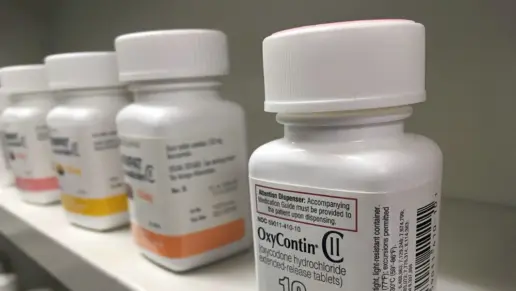Intensive outpatient programs (IOPs) are one of the many options available for individuals who are seeking treatment for substance use disorder. An IOP allows participants to live at home and visit a rehab facility several days each week for treatment.
This type of treatment is designed for people who do not need detox or 24/7 supervision. They may be struggling with mild to moderate addiction or are transitioning from a residential treatment program to the next step in recovery.
What Are the Goals of an Intensive Outpatient Program?
IOPs provide support, relapse prevention, and coping strategies to help people step back into their lives and families while maintaining healthy, sober habits.
Common goals of an intensive outpatient program include:1
- Maintaining abstinence
- Learning early-stage relapse management
- Achieving behavioral change
- Developing coping strategies
- Participating in support programs and therapies
- Establishing or re-establishing support systems
- Addressing psychosocial issues such as housing, employment, and meeting probation requirements.
What Happens During an Intensive Outpatient Program?
IOPs involve a variety of therapies to address the challenges of addiction. Most include group, individual, 12-step, and alternative therapy methods. IOP treatment may also include medication management, vocational training, and case management.
Group Therapy
Group therapy is a central component of most intensive outpatient programs. The goal of these sessions is to provide mutual peer support, teach participants how to socialize without the use of substances, and develop other sober life skills. The types of groups may include:
- Skills development – Allows participants to practice specific behaviors in a safe setting
- Psychoeducational – Teaches participants about addiction and techniques for problem solving.
- Refusal training – Provides role-playing for participants to practice how to say no to substances
- Relapse prevention – Helps participants identify triggers and learn how to manage them
- Family – Teaches participants about the effects of substance abuse on relationships and how family members can support each other
Individual Therapy
Individual therapy sessions allow participants to dig deeper into the issues covered in group therapy. The most common methods used during individual therapy include cognitive behavioral therapy, dialectical behavioral therapy, motivational interviewing, the matrix model, and 12-step facilitation. Individual therapy typically takes place on a weekly basis, but may happen more often during early treatment.
Alternative Therapies
Individual and group therapies involve a lot of verbal communication and interaction. To tap into other healing methods, IOPs may offer alternative therapies as well. These treatments may include adventure therapy, art therapy, equine-assisted therapy, and music therapy.
Support Groups
Intensive outpatient programs encourage participants to join 12-step groups such as Alcoholics Anonymous. Often, the IOP treatment facility hosts these meetings in-house, so participants can attend them while they are on-site for treatment.
How Long Does an Intensive Outpatient Program Last?
An IOP typically lasts 90 days. However, this timeframe could be longer, depending on each person’s unique situation.2
During IOP treatment, participants usually visit the rehab facility three or four times each week. Each visit typically lasts three hours, for a total of 9-12 hours of treatment per week. Some programs require up to 20 hours of participation per week.
Most IOP treatment occurs during weekdays. Many IOPs offer day and evening programs, to provide greater flexibility for participants to meet job and family responsibilities.
Benefits of an Intensive Outpatient Program
There are multiple benefits to an IOP treatment plan, including:3
- Affordability – IOPs are more affordable when compared to the price of inpatient treatment. Because participants live at home, treatment costs do not need to cover housing, meals, and other amenities.
- Support – IOPs allow you to enjoy constant contact and support from loved ones. In contrast, inpatient programs may require separation from family and friends while you live at the rehab facility.
- Structure – An IOP offers a higher level of structure than traditional outpatient programs. This structure is helpful for developing healthy patterns of living in early recovery.
- Practice – IOPs offer the opportunity to practice recovery skills in real time. Participants can apply strategies in the real world that they are learning in treatment, while still engaging in the IOP.
- Flexibility – With an IOP schedule, you have the flexibility to meet and maintain daily responsibilities.
This last benefit is often the most crucial for people seeking addiction treatment. Many times, family or work commitments create a barrier to intensive treatment programs because people can’t leave these responsibilities for extended treatment. But an IOP allows participants to live at home and maintain their normal lives while receiving treatment.
Comparing Outpatient Rehab and IOP
Both IOPs and outpatient care provide treatment at a facility while you live at home. However, intensive outpatient programs involve more hours of treatment each week than standard outpatient treatment.
The higher level of care from an IOP is often necessary for people with more severe substance use disorders or little support at home. Outpatient treatment, on the other hand, is appropriate for individuals with few mental health issues, a solid support system, and less severe addiction.
Comparing Inpatient Rehab and IOP
Inpatient treatment requires participants to live on-site. The facility provides 24/7 care while you are in treatment. Services include meals, medical care, housing, and recreation.
An intensive outpatient program allows you to live at home while you are receiving treatment. You go to the facility only during treatment times, then return home. Rather than 24/7 care, IOPs usually offer between 9 and 20 hours of treatment per week.
Inpatient treatment is designed for people who have more severe substance use disorders or longstanding addiction issues, such as multiple relapses. These programs are also good for people whose home environments are not supportive for recovery or who need detox or dual diagnosis treatment.
Resources
- McCarty, D., Braude, L., Lyman, D. R., Dougherty, R. H., Daniels, A. S., Ghose, S. S., & Delphin-Rittmon, M. E. (2014). Substance abuse intensive outpatient programs: Assessing the evidence. Psychiatric Services (Washington, D.C.), 65(6).
- Treatment, C. for S. A. (2006, January 1). Chapter 3. Intensive outpatient treatment and the continuum of care. NCBI Bookshelf.
- SAMHSA. (n.d.). CLINICAL ISSUES IN INTENSIVE OUTPATIENT TREATMENT FOR SUBSTANCE USE DISORDERS – Advisory 47.





